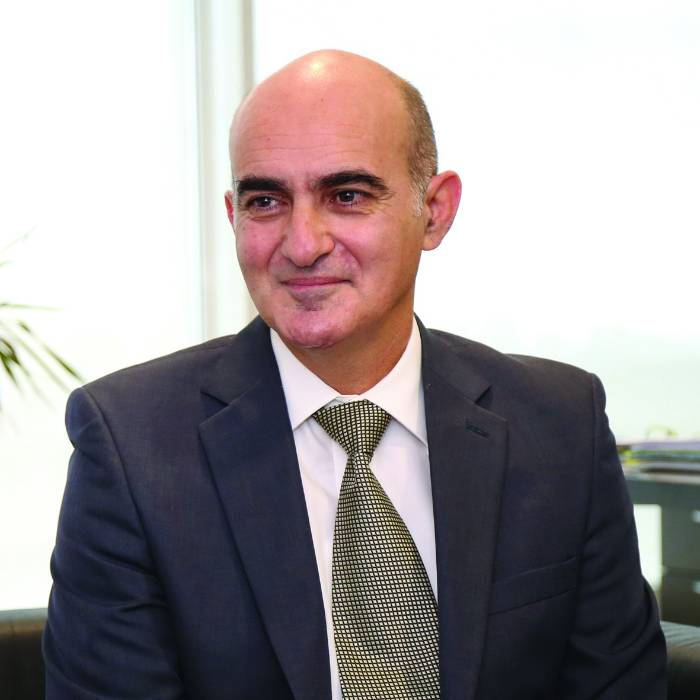APS Bank plc on Thursday announced that it has registered €16.8 million in pre-tax profit at group level during the first six months of 2023, a rise from the €1.9 million it recorded in the same period last year.
This was shared in its Interim Financial Update for the first half of the year, where it also announced a pre-tax profit of €16.1 million at bank level, representing an 18.4 per cent surge from the figure in the first six months of 2022 (€13.6 million).
APS noted that during the first half of 2023, conditions for the world economy to move towards a soft landing receded amid stubbornly high inflation and financial sector turmoil. This was met with “forceful actions” by policymakers to “stabilise financial systems” and avoid instances similar to those of Silicon Valley Bank and Credit Suisse.
The bank added that through its business strategy that helped it navigate through “persistent economic challenges and uncertainties”, together with a calming of financial markets from last year’s instability, it delivered its “best-ever results for an interim financial year”, at both group and bank level.
The sharp rise in pre-tax profit was primarily aided by a gross interest revenue of €49.6 million, attributable to a mix of growth across the bank’s credit portfolio and higher interest returns across most asset classes. Interest expenses amount to €12.5 million, increasing by €5.6 million over the corresponding period last year, with local deposits and non-Euro fundraising repriced higher in line with rising interest rates.
Net fee and commission income rose by 4.7 per cent to €4 million due to increased commission income on advances, card-related transactions, investments, and general transaction banking.
The bank added that other operating income amounted to €1.3 million, a sharp recovery from last year’s negative €6.6 million. This mainly came as a result of fair value changes on financial instruments, with a net gain of €0.8 million against last year’s €8.2 million loss. APS also stated that in terms of portfolio valuations, it is seeing some of its unrealised losses “coming back”, with it anticipating that this trend “may continue in coming financial periods”.
Operating expenses were also on the rise, increasing by 14.5 per cent to €26.3 million, a change the bank mostly attributed to staff costs and expenditure on new technologies, regulatory and compliance requirements, security, insurance and general inflationary rises. The cost-to-income ratio from business operations for the first half of 2023 improved to 63.3 per cent as APS continued to “monitor and search for efficiency opportunities without compromising quality or the customer experience”.
The group’s total assets at the end of the period in question were up by 10.3 per cent to €3.4 billion, with key drivers of the €321.5 million increase being net loans and advances and the syndicated loan book, cash reserves at the Central Bank of Malta, as well as loans and advances to banks.
On the other hand, group liabilities were also on the rise, growing by 10.8 per cent to €3.2 billion, primarily due to customer deposits and amounts owed to banks, with balances increasing by €251.9 million and €31.3 million, respectively.
APS’s Board of Directors have also declared the payment of an interim net dividend of €2.1 million as scrip, thus giving shareholders the opportunity to elect receiving the dividend in cash or through the issuance of new ordinary shares at €0.57 per share. The net dividend equates to €0.0056 per ordinary share, and the dividend is subject to regulatory approval.
Commenting on the overall performance, APS CEO Marcel Cassar said: “We are proud to be announcing our best-ever half-yearly results for both the group and the bank.”

APS Bank CEO Marcel Cassar
He remarked that in continuing with the first quarter's trend, APS made “new, exciting inroads in commercial and corporate business”, increased its share in the home finance market even further, managed liquidity and capital efficiently, while also prioritising its sustainability agenda.
“We achieve this by being continuously transformative and innovative through our offerings of new products, channels, and services,” he added.
“Despite increasing pressures on funding costs, we remain committed to manage the transmission of interest rates with the concerns of all our customers in mind. This presents a continuous test for our asset-liability management, but our team and their modelling are rising to this challenge with excellent results for both bank and customers,” Mr Cassar explained.
He remarked that later in 2023, the bank is looking forward to a “stepping-up” of its funding activity through the launch of an issuance programme of Tier 2 debt instruments.
“Most importantly, our focus is firmly on looking at opportunities to create value for our customers and shareholders driven by a strong business model, robust operating fundamentals, and clear strategic priorities,” he concluded.
Main Image:
